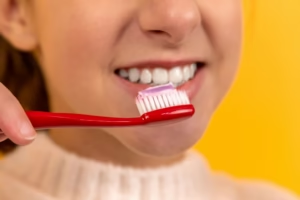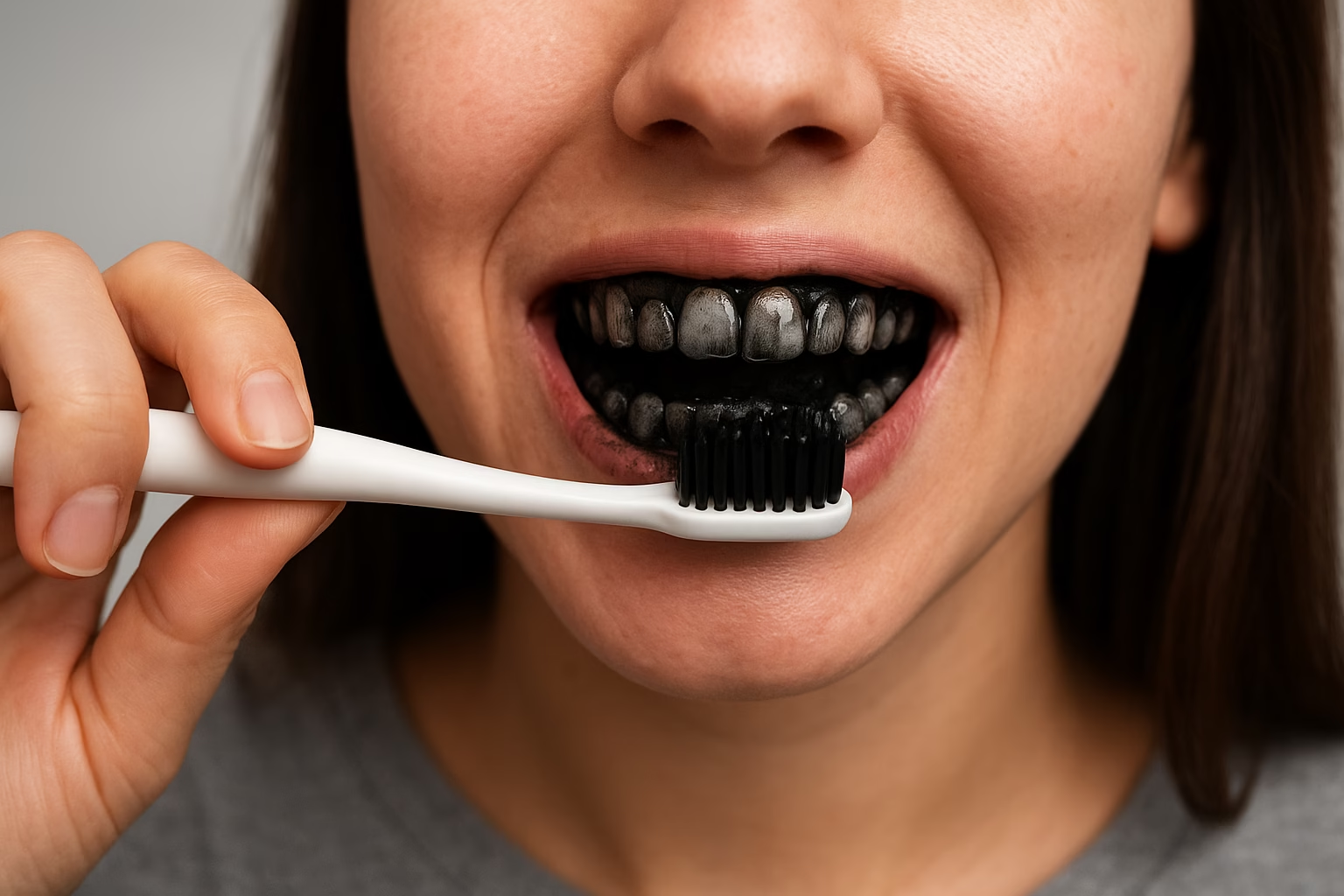Introduction
Over the past few years, charcoal toothpaste has become one of the most talked-about dental products. Marketed as a natural whitening solution, it promises to remove stains, freshen breath, and detoxify the mouth. But is it really safe for your teeth and gums? Or could it actually do more harm than good?
In this article, we’ll explore the science, benefits, risks, and dentist-approved advice about charcoal toothpaste so you can make an informed decision before adding it to your oral care routine.
What is Charcoal Toothpaste?
Charcoal toothpaste is made with activated charcoal, a fine black powder derived from coconut shells, wood, or other natural sources. Activated charcoal is known for its adsorptive properties—it binds to toxins and chemicals, which is why it’s used in certain medical treatments for poisoning.
Companies claim this same property helps absorb stains and bacteria in the mouth, leading to whiter teeth and fresher breath.
Why is Charcoal Toothpaste So Popular?
- Trend-driven: Social media influencers often promote it as a “miracle whitening product.”
- Natural appeal: Many people believe it’s safer than chemical-based toothpastes.
- Instant effect: Its abrasive nature can temporarily remove surface stains, giving the illusion of whiter teeth.
But what’s trending isn’t always backed by science. Let’s dig deeper.
Potential Benefits of Charcoal Toothpaste
According to available studies and anecdotal reports, charcoal toothpaste may offer:
- Surface stain removal
- Charcoal’s abrasiveness can scrub away coffee, tea, or tobacco stains.
- Fresh breath
- It may absorb odor-causing bacteria, providing a temporary fresh feeling.
- Whitening appearance
- By removing superficial stains, teeth may appear whiter in the short term.
- Natural ingredients
- Many brands exclude fluoride, SLS, or artificial coloring, appealing to people who prefer chemical-free products.
Read More: White Tongue: Causes, Home Remedies
Risks and Side Effects of Charcoal Toothpaste
While the marketing is attractive, dentists raise several concerns:
- Enamel Damage
- Charcoal is abrasive. Over time, it can wear down enamel (the protective layer of teeth), leading to sensitivity and cavities.
- No Fluoride Protection
- Many charcoal toothpastes do not contain fluoride, which is essential for cavity prevention.
- Staining of Dental Restorations
- Charcoal particles can settle into cracks, fillings, or crowns, causing a grayish tint.
- Lack of Long-Term Research
- The American Dental Association (ADA) has stated that there isn’t enough scientific evidence to support the safety or effectiveness of charcoal toothpaste for long-term use.
- Temporary Results
- While surface stains may be removed, charcoal cannot change the natural color of teeth or whiten deeper stains.
Pros and Cons of Charcoal Toothpaste
| Pros | Cons |
|---|---|
| Removes surface stains | Can damage enamel if overused |
| Freshens breath temporarily | Usually lacks fluoride |
| Natural ingredient appeal | May stain restorations |
| Trendy, easily available | No proven long-term safety |
Expert Opinion: What Dentists Say
Most dentists agree:
- Occasional use of charcoal toothpaste is unlikely to cause major harm.
- Regular use can increase the risk of enamel erosion, tooth sensitivity, and cavities.
- Charcoal toothpaste should not replace a fluoride-based toothpaste in daily oral hygiene.
Instead, safer options for teeth whitening include:
- Professional dental cleaning.
- Whitening toothpaste with ADA approval.
- Dentist-supervised whitening treatments.
Read More: Early Signs of Oral Cancer You Shouldn’t Ignore
Safe Alternatives for Whitening Teeth

If you’re looking for a safe, effective way to whiten teeth:
- Maintain good oral hygiene (brushing twice daily with fluoride toothpaste + flossing).
- Limit staining foods/drinks (coffee, tea, red wine).
- Use whitening toothpaste approved by dental associations.
- Professional whitening for long-lasting results.
Read More: Why Do Teeth Turn Yellow?
When to See a Dentist
If you notice:
- Increased sensitivity after using charcoal toothpaste.
- Stains that don’t go away.
- Chipped or thinning enamel.
Then stop usage immediately and consult a dentist.
Final Verdict: Safe or Harmful?
Charcoal toothpaste can provide a quick “whiter smile” effect, but it’s not a safe long-term solution. The risks of enamel erosion, lack of fluoride protection, and potential staining outweigh the temporary benefits.
Note: If you want lasting results, consult your dentist for safe whitening treatments instead of relying on trendy products.
FAQs
Q1: Is charcoal toothpaste safe for daily use?
No. Due to its abrasive nature and lack of fluoride, it’s not recommended for daily use.
Q2: Does charcoal toothpaste actually whiten teeth?
It can remove surface stains, making teeth appear whiter temporarily, but it doesn’t change the natural tooth color.
Q3: Can charcoal toothpaste damage enamel?
Yes. Overuse may erode enamel, causing sensitivity and cavities.
Q4: What is a safer alternative to charcoal toothpaste?
Fluoride-based whitening toothpastes, professional cleanings, and dentist-supervised whitening are safer options.
Q5: Does the ADA approve charcoal toothpaste?
No. As of now, the ADA has not given its seal of approval to any charcoal toothpaste.
References:
- Mayo Clinic on Teeth Whitening
- PubMed Studies on Charcoal Toothpaste
- Abrasiveness and whitening effect of charcoal

